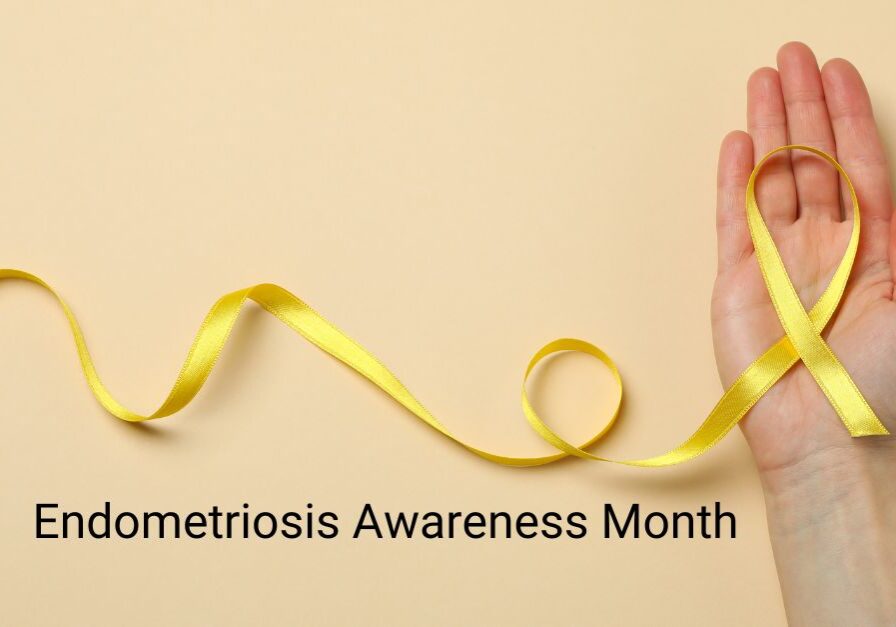Endometriosis Awareness: Faster Diagnosis and Better Care with Advocates

March is here, marking Endometriosis Awareness Month—a crucial time to raise awareness about a condition that affects more than 11% of women and people assigned female at birth. Endometriosis occurs when tissue, similar to the lining of the uterus, grows outside of it. This can cause a wide range of debilitating symptoms, including intense menstrual cramps, back pain, nausea, painful sex, difficulties in pregnancy, and more. The condition can significantly impact daily life, and yet, it remains misunderstood and often misdiagnosed.
Breaking Barriers with Advocacy and Compassionate Care
A key issue facing this disease is the frustratingly long journey to an accurate diagnosis. In many cases, symptoms are dismissed by providers as “just normal period pain,” leading to an average diagnosis delay of more than ten years. This delay is not only distressing but can also have long-term health consequences. For marginalized groups – including people of color and those from lower-income backgrounds – systemic racism, sexism, and disparities in healthcare access compound delays in diagnosis.
In such a complex and often frustrating healthcare landscape, the importance of healthcare advocates cannot be overstated. These advocates are essential in helping people with this disease navigate the maze of medical appointments, insurance systems, and healthcare providers. Advocates act as a bridge, ensuring that patients are heard, understood, and treated with the care they deserve.
The Role of Healthcare Advocates in the Endometriosis Journey
For those with endometriosis, a healthcare advocate can play several crucial roles:
- Helping Patients Access the Right Care: Advocates can connect patients with specialists, such as gynecologists or reproductive endocrinologists, who have experience diagnosing and treating endometriosis. Advocates help ensure that individuals are not just treated for their symptoms, but that their condition is thoroughly investigated.
- Seeking Second Opinions and Fighting for Timely Diagnosis: Healthcare advocates are instrumental in helping patients seek second opinions or request further testing. They can work with patients to push for a timely and accurate diagnosis—something that can mean the difference between years of unnecessary suffering and effective treatment.
- Navigating Emotional and Psychological Support: The emotional toll of living with endometriosis can be overwhelming. Advocates can provide resources for emotional support and mental health services, ensuring that individuals do not feel alone in their struggles. This support is essential, as chronic pain and fertility challenges can take a significant toll on mental well-being.
- Raising Awareness and Educating the Public: Healthcare advocates also serve as powerful voices for raising awareness about the realities of endometriosis. They help educate both the public and healthcare providers about the condition, reducing stigma and encouraging better diagnostic practices. Advocacy efforts work to break the cycle of misinformation and ignorance that many individuals with endometriosis experience.
- Advocating for Policy Change: In addition to supporting individuals, healthcare advocates work on a larger scale to push for changes in healthcare policy. By advocating for more funding for research and better access to treatment options, they help create a future where early diagnosis and effective treatments are more readily available to all who need them.
Creating a Better Future for Those with Endometriosis
The goal of Endometriosis Awareness Month is not only to raise awareness but also to call for action. Through advocacy, we hope to see improvements in the way healthcare systems respond to endometriosis—shorter diagnosis times, more comprehensive treatment plans, and greater overall awareness about this chronic condition.
For those living with endometriosis, the support of a healthcare advocate can make a world of difference. Advocacy gives patients the voice they deserve, ensuring they don’t have to face this difficult condition alone. With continued awareness and compassionate care, we can work toward a future where those with endometriosis no longer have to suffer in silence or endure years of frustration before getting the help they need. If you are looking for an independent healthcare advocate, we can help.
